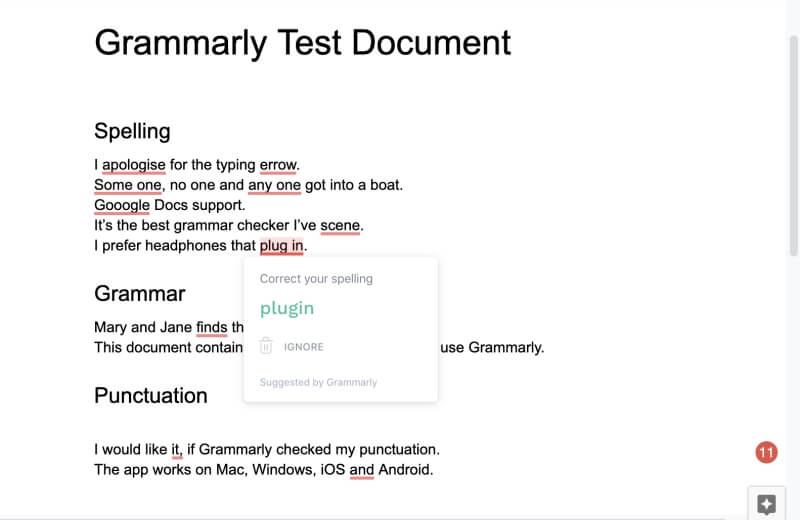
Grammarly themselves do not say on their website, as far as I can see, that Grammarly has a problem with big documents. Then, when I am ready to edit, I switch it back on. So, when writing in the raw, as it were, I leave it switched off. (I sometimes wonder if teachers of the 1970s were under governmental instructions NOT to produce writers). The only creativity that produces is assorted murder plots with the teacher as the victim. It can be like having that nasty little prat of an English teacher hovering over your shoulder all day. But then, that could be said of any checker like this if you are writing creatively, then you may not want your flow and enthusiasm to be constantly monitored for grammatical errors. Consequently, it really is not a very good tool to use when writing your first draft. Grammarly does not seem overly fond of my big files and causes latency issues which a right pain. I am using Grammarly to help me write 170,000-word novels, so my words docs are a decent size. A bit slow, dear hearts!įirstly, a note about speed. If you are a UK author, I strongly suggest that you try another solution, as you will be getting annoying US corrections all over the place. Grammarly now has given an option for using UK English, but this does NOT apply to the Word plugin and they have told me they have no plans to implement that feature. For my use, it comes in two forms the browser plugin that gives you spell checking and grammar checking of online forms and so on, and then the Word add-in, which is what I am going to chat about. I am using the premium version which offers slightly more in-depth analysis of your writing. I started out by thinking the tool was useful, but I am now getting very frustrated with it. I must admit I do like certain aspects of technology, especially anything that allows me to be a bloody lazy git, so I am attracted to such beasts. In a bid to help myself, I have been using Grammarly as a plugin to MS Word. However, despite wishing to see a more liberal and organic approach to language, I do understand the need for consistency, if nothing else it can reduce ambiguity and can help with the "flow" of the journey across the page. It is a pity that there is now a community of people who are so fussy, that they risk stagnating the language. Rather fun! It has certainly turned English into a rich if a rather confusing way of communicating ideas. The noble bard just invented words when he couldn't think of one. People spelt words as they came across them, and grammar had to tolerate the same twists and turns dependent on geography and the knowledge of the writer. Before the OED in the UK, there was no such thing as consistency of spelling. I love the fact that someone will write "thru" instead of "through" (depending on country) or will mess up ideas in a rap and all those other things that keep a language alive. I am a lover of the way that popular culture tears language apart and reinvents it for a new world. As a reviewer friend of mine pointed out the other day, there must be some pedantic readers for whom reading is a very bitter and angry experience. I do need whatever I read to be readable, but I want to visit an author's mind, especially within the realms of fiction, not the mind of some student of grammar who cannot see past either a mistake or, worse, an intentional twist to the style of the story.

All a complete load of bollocks, to be honest. Oh, and that swearing was only for the lazy and badly educated. I was educated to believe there was good and bad use of English (bad should be punished), that there was only one "proper way" of saying something, and that spelling was so much more important than creativity.

Languages are living things and they are a reflection of culture. It is a little bit of a pain, but I am very tolerant of people's foibles in English. I am not dyslexic, not properly so, but I can reverse letters very easily and do strange things that I just don't notice or sometimes cannot see. I admit to a little word blindness at times. (Quick ramble first, so scroll down if you just want to read about Grammarly.) UPDATE: Having suffered some fairly critical problems with the plugin, including problems with multiple-monitor setups, crashing, false-positives, and no UK English support, I have now stopped using Grammarly and use StyleWriter 4 instead.

Grammar should not be a slave to the pedant


 0 kommentar(er)
0 kommentar(er)
